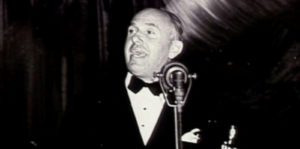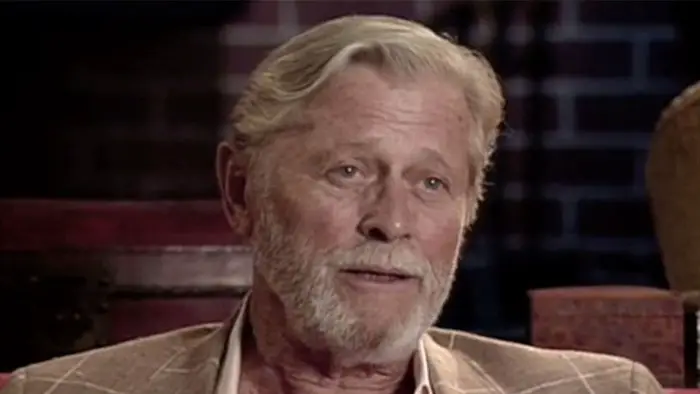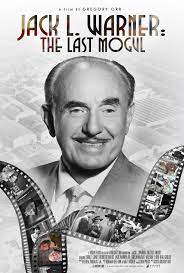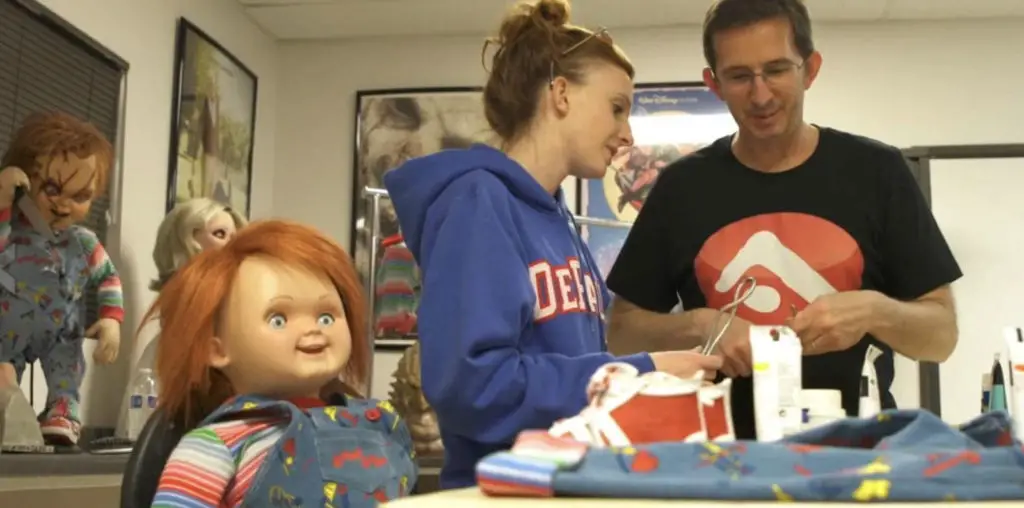
Warner Brothers. A behemoth of Hollywood. The studio was founded by actual brothers — Harry, Albert, Sam, and Jack — and was considered a minor moviemaking machine until the historical release of The Jazz Singer. The grandson of the youngest Warner, Gregory Orr, writes and directs an exhaustive examination of “Chief” in Jack L. Warner: The Last Mogul. Was critical distance needed to convey this epic true life properly, or does the filmmaker allow audiences to feel close to the subject as well?
Born in 1892, Warner moved with his family to the United States at a very young age. He and his brothers were very enterprising and would eventually start a nickelodeon. Then they made the trek westward to settle in the mecca of the moviemaking industry, Hollywood. As president of the newly formed Warner Brothers, Jack L. Warner was the driving force behind many of their most cherished early titles. However, his hard-nosed approach led him to be feared and/or despised by most employees. This is despite the fact that Warner was always quick with a joke; reportedly, not very good ones, but still. But, of course, nothing lasts forever, and the changing tastes of filmgoers, and society, saw the last movie mogul fall hard.
Jack L. Warner: The Last Mogul is a talking heads documentary peppered with photos and archival footage. While there’s something amusing in the idea that the film about a filmmaking titan is rather baseline, stylistically, that doesn’t mean it’s not worth watching. In fact, Orr jam packs the swiftly paced title with a ton of information, none of it repetitive, so things never get stale.

“…Jack L. Warner was the driving force behind many of [Warner Brothers’] most cherished early titles.”
The impressive line-up of interviewees is the first thing to grab one’s attention. There’s Debbie Reynolds, Shirley Jones, Neal Gabler, and William Orr, to name but a few. Granted, some of these celebrities (and others not named) appear via older interviews or archival footage. Still, their presence here and what they have to say about the man at the center of the narrative is fascinating.
On top of that, the film does an amazing job of drawing parallels. Warner made the likes of James Cagney and Humphrey Bogart stars. The interesting thing is that the actors he gravitated toward all resembled him. Plus, hearing why Warner was so hard on and disliked actors so much adds a complicated layer to the man’s dreams and desires.
If one is a cinephile and adores motion picture history, then Jack L. Warner: The Last Mogul is a must-watch. Yes, the style is that of a typical documentary. But the interviewees are brilliant, and the amount of information gleaned is shockingly high. Moreover, Orr has done a bang-up job at exploring his family’s last legacy through the lens of its most formidable and historical figure.
For more information, visit the Jack L. Warner: The Last Mogul Facebook page.

"…Orr has done a bang-up job..."



A good review. Well-balanced and fair! The original version of this film was made in 1993. It took thirty years to get it right with this updated version just in time to celebrate the centennial of Warner Bros. The documentary is a reminder that movies are as much a reflection of the filmmakers as they are of the system in which they were made. “The Golden Age” of Hollywood could be venal, and sexist and racially exclusive, but it also offered talented artists a place to tell powerful stories that shaped the country’s view of itself, while sometimes swinging the needle towards justice.